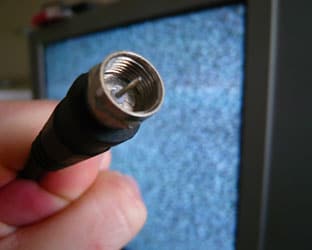Congress has formed the Joint Select Committee on Deficit Reduction to attempt to solve the nation’s financial woes, with incentive spectrum auctions in the television space on the table. NAB President/CEO Gordon Smith is referring them to a recent study that says wireless companies are already sitting on vast amounts of unused spectrum. CEA, of course, disagrees.
Gordon cited the recent Citigroup study that says wireless carriers control 538 MHz of spectrum and are actually using less than half.
“The importance of the Citigroup findings cannot be overstated,” wrote Gordon. “Citigroup’s analysis suggests that ‘spectrum crisis’ claims have been manufactured by the wireless and consumer electronics industries – and advanced by the FCC – simply do not withstand scrutiny.”
Gordon said television broadcasters already relinquished more than 25% of their spectrum during the DTV transition, and now they being asked to cough up 40% more. He said it could imperil an industry that is good for $1.17B in annual GDP to the American economy.
Smith wonders what’s really going on, a spectrum crisis or a land grab? Where is a full FCC spectrum inventory? What is the true value of local television, particularly in times of emergency? If television is becoming irrelevant, why does it remain the unchallenged lead news source for the American public?
Gordon concluded that broadcasters should be free to participate in auctions, as long as there is no coercion. Those choosing not to participate should be seen as part of the solution to overcoming spectrum capacity constraints using the one-to-many broadcast model.
NAB also ran an ad in Capitol Hill publications. It can be viewed here.
Consumer Electronics Association SVP Michael Petricone said the NAB is using a “desperate and fanciful assertion” that there is no spectrum crisis. He said the spectrum in the hands of wireless companies is adequate for slower streaming rates but television spectrum is needed to for streaming video, and as a result, the crisis is real. He said, “Instead of engaging in frenetic attempts to deny the obvious, we urge NAB to work with policymakers and the innovation industry, and take the responsible steps needed to get our economy back on track.”




